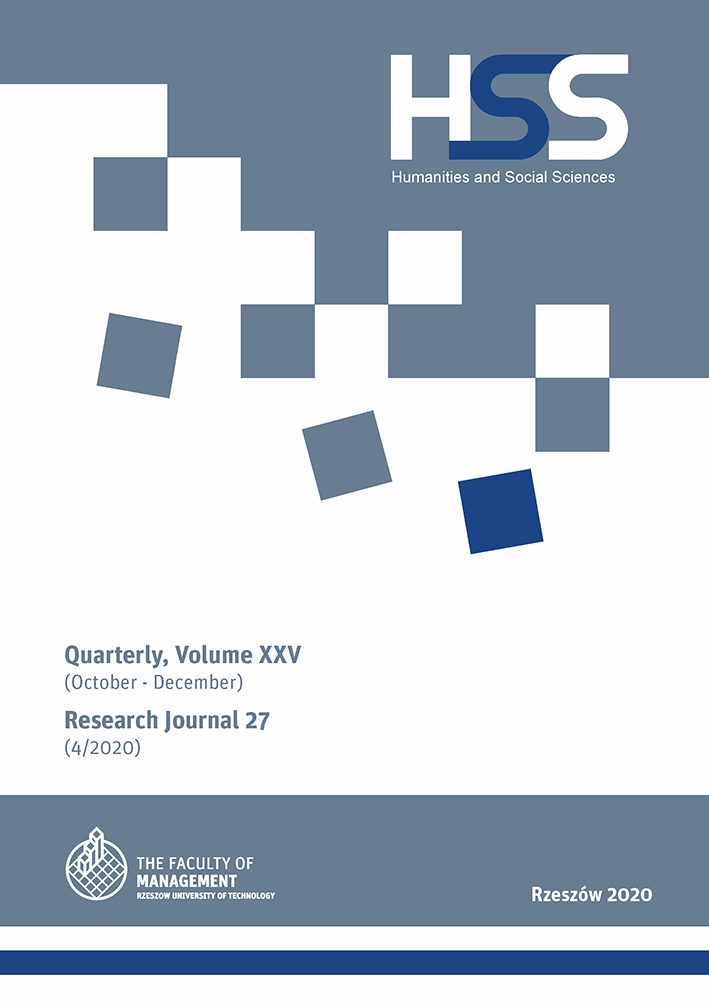Abstrakt
Introduction: Negative and difficult life experiences, and stressful situations that an individual may face, affects not only those who experience such situations but also their family and friends. In a distressing situation, such as an illness in the family, a person suffering from an illness and their closest support networks may need various types and forms of support. Difficulties in coping with demanding situations frequently result in fear, anxiety, and depression. Sufferers may feel threatened and often expect help and support from those who are close to them and from specific institutions. The issue of social support still attracts considerable interest, and is examined in this research from the perspective of various scientific disciplines.
Aim: The main aim of this study is to assess, in psychological terms, the need for social support among individuals who are in a difficult life situation because they suffer from a chronic disease.
Materials and methods: The study was conducted among chronic illness sufferers and involved 40 individuals (23 men and 17 women) hemodialyzed at St. Luke’s Hospital in Tarnów. The methods used were an individual questionnaire and a survey questionnaire developed by the authors and the Berlin Social Support Scales (BSSS) developed by Ralf Schwarzer & Ute Schulz
Results: Research findings show that emotional support is the most important type of support for a large percentage of respondents in a difficult life situation. They also need instrumental support, which involves obtaining specific information about how to cope with their condition. In an illness situation, the respondents experience fatigue, exhaustion and general anxiety. A chronic disease and the treatment associated with it can place limitations on some aspects of life and the social functioning of people affected by it. These people find it hard to enjoy the cultural and social life or to participate in recreation. Conclusions: Individuals in a difficult situation, such as those facing a chronic illness, expect emotional and instrumental support. A chronic illness and its treatment limits the social activity of those who are affected by it.
Bibliografia
Baum, E. (2017). Jakość życia chorych poddawanych terapii nerkozastępczej. Poznań: Wydawnictwo Naukowe Uniwersytetu Medycznego im. K. Marcinkowskiego w Poznaniu.
Bereza, B. (2009). Doświadczanie własnej choroby przez pacjentów dializowanych. Lublin: Towarzystwo Naukowe KUL.
Filipiak, G. (2010). Funkcja wsparcia społecznego w rodzinie. Poznań: Wydawnictwo UAM.
Grochowska, A., Kurzawska, M., Bodys-Cupak, I. (2016). Wsparcie a jakość życia pacjentów dializowanych w Tarnowie. „Polski Przegląd Nauk o Zdrowiu”, No. 2 (47).
Kacperczyk, A. (2006). Wsparcie społeczne w instytucjach opieki paliatywnej i hospicyjnej. W: Kaptacz, A. De Walden-Gałuszko, K. ed., Pielęgniarstwo opieki paliatywnej. Warszawa: Wydawnictwo Lekarskie PZWL.
Kurowska, K., Weselska, M. (2015). Rola wsparcie a przystosowanie się do życia osób dializowanych. „Nefrologia i Dializoterapia Polska”, No. 19.
Lichodziejewska-Niemierko, M. (2016). Jakość życia u chorych na nerki. „Dializa i Ty”, No. 1(27).
Marcinkowska, U., Zabiegaj, U., Kulik, H. (2018). Interakcje społeczne i wsparcie społeczne u chorych leczonych nerkozastępczo metodą hemodializy. „Nefrologia i Dializoterapia Polska”, No. 22.
Sęk, H., Cieślak, B. (ed.) (2004). Wsparcie społeczne, stres i zdrowie. Warszawa: Państwowe Wydawnictwo Naukowe.
Wiśniewska, L., Paczkowska, B., Białobrzeska, B. (2010). Zapotrzebowanie na wsparcie emocjonalne wśród pacjentów leczonych nerkozastępczo. „Forum Nefrologiczne”, No. 3(1).
Ziarko, M. (2014). Zmaganie się ze stresem choroby przewlekłej. Poznań: UAM Poznań.


